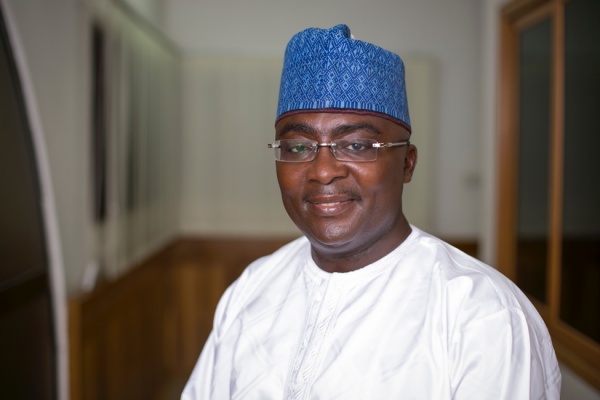After Minister of Finance, Ken Ofori-Atta’s 2022 Budget presentation, as usual, some critics by every means want to engage in vile propaganda against Vice-President Dr. Mahamudu Bawumia.
This time around, these critics are using a suggestion by Dr. Bawumia.
It would be recalled that in an interview with Kwame Sefa Kayi, Dr. Bawumia said that “I don’t think Mobile Money should be taxed because most of the people who use the service are poor people, so if you put more taxes on it, they will suffer.”
Dr. Bawumia is not far from reality. Most of the users of Mobile Money transactions are poor people below the income of $10 per day. This perhaps informs government to only consider excluding all transactions that add up to GHc 100 or less per day which is approximately GHc 3,000 per month.
The intention of this move is to safeguard and protect the poor and the vulnerable who use the Mobile Money service and this is clearly in full support of what Dr. Bawumia stated earlier during the interview with Kwame Sefa Kayi.
In the opinion of Dr. Bawumia, there is no need to put more taxes on Mobile Money so that poor people can be protected. However, the collective decision of the government was to tax Mobile Money service with a Pro-Poor Approach in order to be in tandem with the position of the Vice-President Dr. Bawumia.
Therefore, the poor and the vulnerable are EXEMPTED from the payment of the 1.75% tax on the Mobile Money Service. The mobile money transactions of poor and vulnerable people can NEVER exceed GHC 3,000 per month if indeed we would be sincere to ourselves and not distort facts with propaganda.
Most importantly, the majority of poor and vulnerable people are RECIPIENTS of Mobile Money service and not SENDERS. Therefore, clearly, poor and vulnerable people who receive mobile money are completely EXEMPTED from the payment of the 1.75% of the e-levy since they are mostly recipients and not senders.
What Ghanaians should be more concerned about is the laudable projects that 1.75% of e-levy is going to be utilized in the area of youth employment, entrepreneurship, cyber security, road, and digital infrastructure, etc.
The position of Dr. Bawumia was seriously factored and considered by the government before the introduction of the 1.75% e-levy, and Dr. Bawumia opinion was perfectly achieved since the government decided to exclude transactions that add up to GHC 100 or less per day which is approximately GHS 3,000 per month, and clearly, this is the range or bracket the poor and the vulnerable largely find themselves in.









































